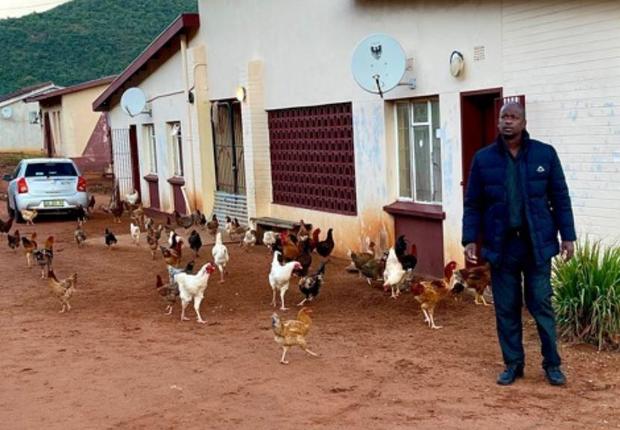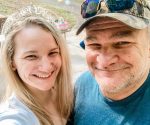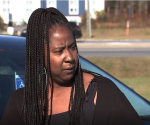As U.S. vaccinates kids against COVID, Africa is mired in fear amid “unconscionable” shortages
[ad_1]
Johannesburg, South Africa — The Biden administration’s plan to buy 500 million COVID-19 vaccine doses and donate them to the lowest-income nations in the world is part of a global push to give everyone equal access to the vaccine. Experts have warned for months that if more of the global population isn’t protected from the virus, it will continue to mutate, threatening everyone with new strains that could resist the vaccines available.
But while the U.S. has administered 92 doses per every 100 people, other places around the world are far behind. Not even 1% of the total African population is fully vaccinated, and several countries haven’t given any shots at all yet.
CBS News correspondent Debora Patta reports that in South Africa — one of the wealthiest nations on the continent — just 2.4 doses have been given per 100 residents.
Elderly South Africans are lining up in Soweto and other places to finally get vaccinated, but it’s a far cry from the U.S., which is already vaccinating children. And just across the border in the tiny kingdom of Eswatini, some health workers haven’t even received a first shot.
Nurse Menzi Nkomo rises every morning when the roosters crow. He’s trying to stay strong after fighting the pandemic for over a year with nothing more than a mask. With no vaccines available yet in Eswatini, he’s not ready for a third wave.
CBS/Debora Patta
“Our country does not afford even the simple treatment for the COVID patients,” he told CBS News.
Worried about infecting his family, Nkomo has been living at the Nkwene Clinic where he works. It’s the first line of defense against the virus for the local community. The fact that the U.S. is already vaccinating children is cause for hope, he says, but that hope is not for him, or his country.
“You know that there is something that can assist you, that can save more lives, but you can’t access it — it’s so painful. It’s like we live in another world,” he told Patta.
Eswatini, which has a population of just over a million, has already exhausted its meager vaccine supply. Just over 30,000 health workers got a first shot, but Nkomo was not among them. Now, in Eswatini and other African nations, some health workers who did get a first shot are at risk of missing the deadline to get their second dose as there simply aren’t vaccines where they need to be.
If wealthy nations are able to vaccinate children, they should be sharing more excess doses with places in dire need, according to the South African government’s pandemic advisor, Dr. Salim Abdool Karim.
“To me, it’s unconscionable that a country vaccinates low-risk people when a whole lot of other countries, especially in Africa, haven’t even vaccinated their health care workers,” he told CBS News. “That’s an unacceptable, an ethically and immorally unacceptable, situation.”
All of Africa’s countries — with a combined population of more than 1.3 billion people — have received fewer than 50 million doses of coronavirus vaccines. That’s compared to the more than 2 billion administered worldwide.
But the head of Africa’s CDC, John Nkengasong, said insufficient production isn’t the problem. He told CBS News there are enough vaccine doses available right now to tackle the global shortage.
“We are not actually begging for vaccines,” Nkengasong told Patta. “We are just saying let’s have an arrangement where you can delay your vaccines a little bit. There is absolutely no reason why in some countries you have four- or five-times more vaccines sitting in deep freezers.”
Africa had been relying on India to provide vaccines via the global COVAX initiative, but that pipeline was halted as India clambered to tackle its own dire COVID crisis and stopped exporting doses churned out by its mammoth pharmaceutical industry.
“We find ourselves in a very, very untenable position, where the vaccination program is unpredictable,” explained Nkengasong. “This vaccination program for COVID has to be fast and has to be at scale to have a chance of winning the battle against COVID-19. This is not just another immunization program like the measles, the polio, where we can go slowly and then subsequently get there.”
The World Health Organization warned on Thursday that as COVID-19 cases in Africa climbed for a third consecutive week, “47 of Africa’s 54 countries — nearly 90% — are set to miss the September target of vaccinating 10% of their people unless Africa receives 225 million more doses.”
“As we close in on 5 million cases and a third wave in Africa looms, many of our most vulnerable people remain dangerously exposed to COVID-19,” Dr. Matshidiso Moeti, the WHO Regional Director for Africa, said in a statement. “Vaccines have been proven to prevent cases and deaths, so countries that can, must urgently share COVID-19 vaccines. It’s do or die on dose sharing for Africa.”
The common enemy for the entire world, Nkengasong stressed to CBS News, is the virus.
Nurse Nkomo knows that all too well, and he knows his only real weapon in the fight is a vaccine.
Unless the supply ramps up fast, many in Africa fear the cost will be measured in lives, so Wednesday’s announcement from President Biden about the donations of U.S. vaccines will be welcome news, but it won’t be enough on its own to protect Africa, or the world, from the coronavirus.
Nkengasong, along with health officials from across Africa and other developing parts of the world, will be watching closely as Mr. Biden meets with fellow leaders from the “Group of Seven” wealthy nations in England this week, hoping to hear of more commitments like the one the U.S. is making.
[ad_2]
Source link











